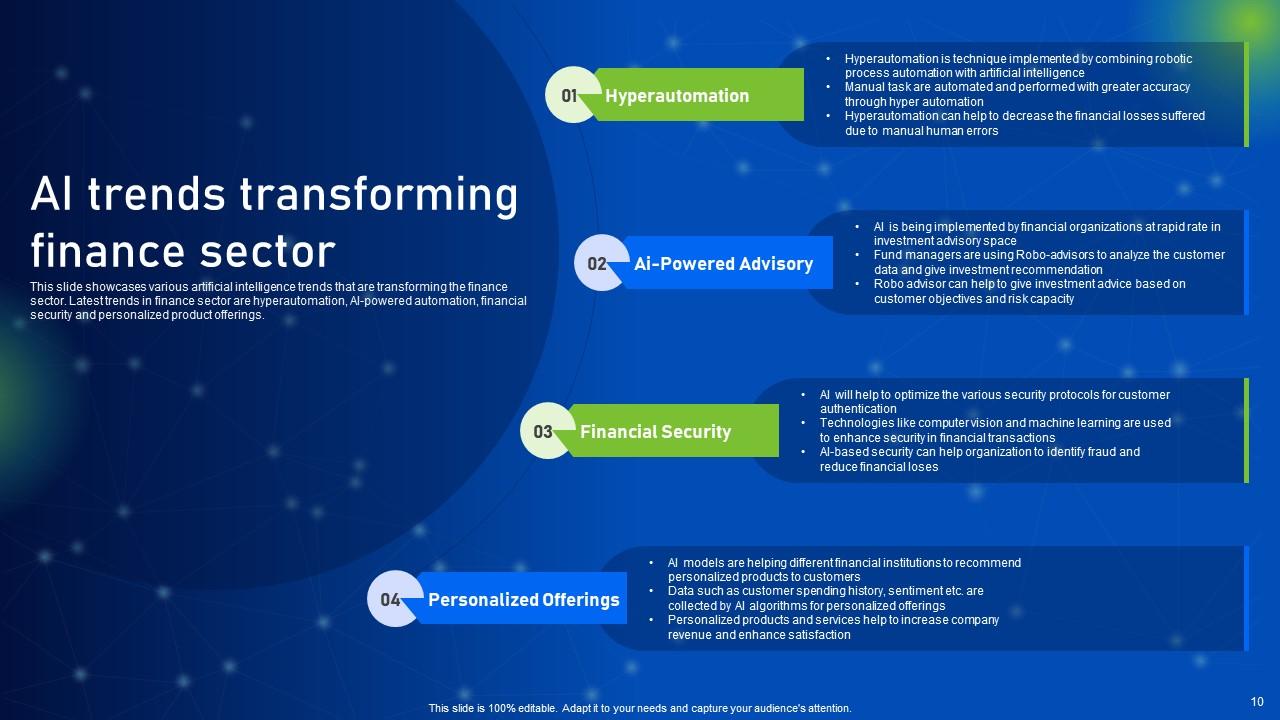Welcome to the future of finance, where Artificial Intelligence (AI) is revolutionizing the way financial services operate. Implementing AI in the financial sector isn’t just about keeping up; it’s about staying ahead in a landscape that demands efficiency, accuracy, and innovation. Let’s explore some quick tips for seamlessly integrating AI into financial services and reaping the benefits of this transformative technology!
1. Identify Clear Objectives and Use Cases
Before diving into the world of AI, define clear objectives and use cases for its implementation. Whether it’s improving fraud detection, enhancing customer service with chatbots, or optimizing investment strategies, a well-defined roadmap ensures that AI aligns with your business goals and delivers tangible benefits.
2. Ensure Data Quality and Accessibility
AI thrives on data, and the financial sector is no exception. Ensure that your data is of high quality, free from inaccuracies and biases. Establish robust data governance practices and ensure accessibility for AI algorithms. Clean, well-organized data forms the foundation for accurate AI insights and decision-making in finance.
3. Embrace Machine Learning Models
Machine Learning (ML) models lie at the heart of AI applications in finance. Choose and implement ML models that suit your specific use cases. Whether it’s predicting market trends, assessing credit risks, or automating trading strategies, ML models can analyze vast datasets and uncover patterns that human analysts might miss.
4. Prioritize Explainability and Interpretability
Especially in financial services, where decisions have significant consequences, prioritize the explainability and interpretability of AI models. Ensure that stakeholders, including regulators and end-users, can understand how AI arrives at its conclusions. Transparent AI builds trust and confidence in its application within the financial ecosystem.
5. Implement Robust Security Measures
Security is paramount in finance, and AI implementation is no exception. Implement robust security measures to protect sensitive financial data and AI models. Regularly update and patch systems, encrypt data, and adhere to industry-specific compliance standards. A secure AI infrastructure safeguards against cyber threats and ensures the integrity of financial operations.
6. Foster a Culture of Continuous Learning
AI is a rapidly evolving field, and continuous learning is essential. Foster a culture within your financial organization that encourages employees to stay updated on AI advancements. Provide training opportunities, encourage collaboration with AI experts, and invest in professional development to keep your team at the forefront of AI technologies.
7. Collaborate with Industry Experts
AI implementation benefits from collaboration with industry experts. Engage with AI vendors, consultants, and research institutions that specialize in finance. Leverage their expertise to navigate the complexities of AI integration, stay informed about industry best practices, and ensure that your financial services are at the cutting edge of technological innovation.
As AI reshapes the landscape of financial services, its successful implementation requires a strategic and informed approach. By identifying clear objectives, ensuring data quality, embracing machine learning models, prioritizing explainability, implementing robust security measures, fostering a culture of continuous learning, and collaborating with industry experts, you’ll be well-positioned to harness the transformative power of AI in finance. The future of finance is intelligent and powered by AI!








